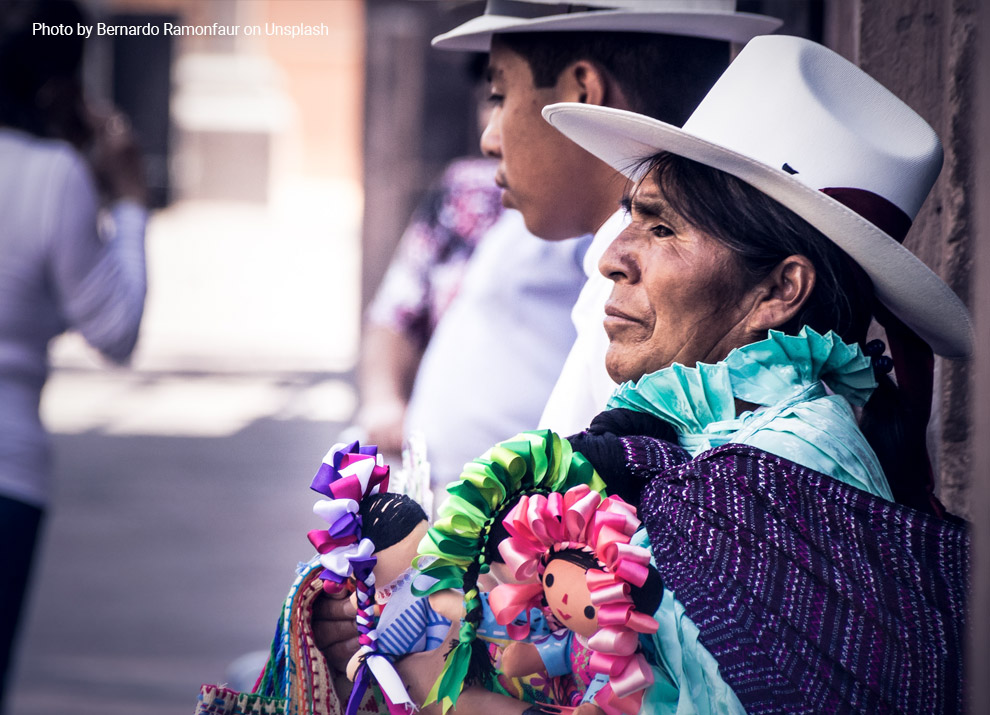On January 17, 2022 the Federal Law for the Protection of the Cultural Heritage of Indigenous and Afro-Mexican Peoples and Communities was published and entered into force on January 18, 2022. The purpose of the law is to recognize and guarantee the protection, safeguard, and development of the cultural heritage and the collective intellectual property of the indigenous and Afro-Mexican peoples and communities.
In general terms, this new piece of legislation sets several principles, such as the right to self-determination and autonomy, recognizing the forms of government, institutions, regulatory systems, procedures, and forms of dispute resolution of the indigenous and Afro-Mexican peoples and communities; it regulates the so-called Right of Collective Property over the cultural heritage of the Indigenous and Afro-Mexican Peoples and Communities; it regulates authorizations for the use, exploitation and commercialization of the elements of the cultural heritage of the indigenous and Afro Mexican peoples; the law establishes the Cultural Heritage Protection System as well as a National Registry of the Cultural Heritage of Indigenous and Afro-Mexican; Mechanisms for Resolution of Controversies, Infringements, Sanctions and Criminal offenses are also regulated.
The Right of Collective Property refers to the cultural heritage elements that constitute a collective heritage of each protected group or community and does not require to follow an administrative procedure to constitute the property right.
Also, Cultural Heritage is defined as the set of material and immaterial goods that include the languages, knowledge, objects, and all the elements that constitute the cultures and territories of the indigenous and Afro-Mexican peoples and communities, which give them a sense of community with their own identity and that are perceived by others as characteristic, to those who have the full right of ownership, access, participation, practice and enjoyment in an active and creative way. Their traditions, customs, spiritual and religious ceremonies, sacred places and ceremonial centers, objects of worship, symbolic systems, or any other which are considered sensitive to the communities will have special protection to guarantee their forms of life and identity for their cultural survival.
An important section of the law focuses on the Mechanisms for Resolution of Controversies, Infringements, Sanctions and Criminal offenses, stating that the indigenous and Afro-Mexican peoples and communities, based on their self-determination and autonomy, as well as their regulatory systems, may opt for mediation, claim or criminal complaint when they identify the non-consensual use of the elements of their heritage.
Contrary to PPH which can be requested only before the substantive examination has initiated, PPG can be requested at any time during te prosecution of the Mexican application, by amending the pending claims in Mexico to match those allowed/granted by the USPTO or EPO. Non-patentable matter such as therapeutic/diagnose/surgical methods applicable to the human being or animals, computer programs or business methods, among others, will still not be allowed despite PPG - however, please contact us for appropriate rewording or revamping of the claims if needed.
The towns and communities may request mediation or promote a claim directly before the INPI or before any entity of the Ministry of Culture. The claim process will be (litigated, prosecuted, contested, appealed) before the Mexican Copyright Institute (INDAUTOR). Also, precautionary measures are available to the claimants and in order for the precautionary measure to take effect, the community will not be required to grant any guarantee or bond.
A conciliation stage is also considered allowing the parties to be present at a hearing to settle the dispute. Finally, infringement grounds and criminal offenses are detailed in the law. In addition to the fines that may be imposed on the alleged infringer, the resolution will contain the measures to guarantee the repair of damages.
Our team at Panamericana de Patentes y Marcas will continue to closely monitor the application and criteria used in the observance of this new law. Should you have any questions or require any assistance do not hesitate to contact us.
We are at your service should you have any questions.

